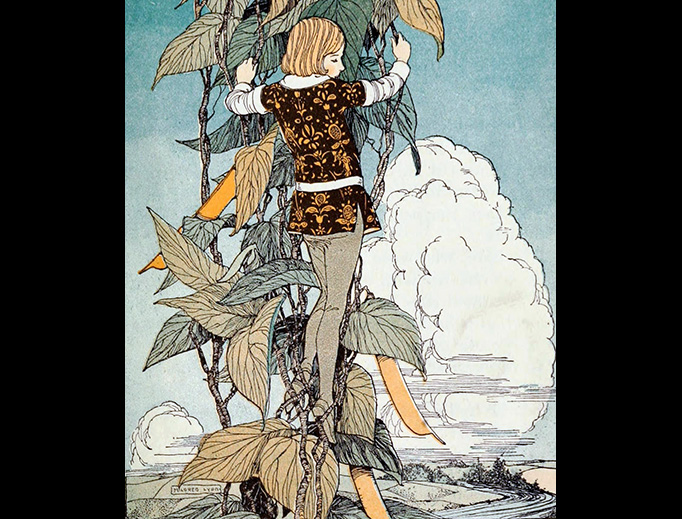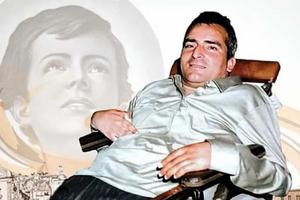Young People Who Support Abortion? The Problem Might Be in the Imagination
Thinking is being done for us, and we need to recognize it.

The modern mind is sure that its conclusions and persuasions have been rigorously reasoned to, relying almost exclusively on science and statistics. It thinks it is thinking.
This is obviously not true. Without the litany of examples, the sheer fact that today’s fashionable thinking directly contradicts universally held beliefs – truth perceived by men of varied and distant cultures and times – reveals that something isn’t quite right. The shift is too violent. Thinking is being done for us, and we need to recognize it.
And while it is true that the education in the older grades and college introduce to the intellect explicit errors that grow into monstrous beliefs, and that the force of fashionable thinking communicated through media is wildly controlling, it is perhaps more and most dangerous that the seeds of error are sowed in the imagination of our children long before the loony teachers go on tears against obvious truths. (They get big salaries too because it’s a lot of work to sway a rational soul against the natural law.)
I think the most telling example is the abortion issue. Working with Catholic youth, it is astounding to me that we have to employ reasoned arguments at all to convince “pro-choice Catholic” children that abortion is evil. Of course we should provide apologetics, but these rational arguments should be a confirmation of what they already sense to be true. It should be intuitively true to them that a mother ought not kill her child, long before justice and the personhood of babies are explained.
The fact that the very idea of infanticide is not repulsive shows that their imaginations were conditioned to receive the modern doctrines of absolute and sovereign individuality. This “freedom” frees one to do whatever pleases them or they “feel” to be right, even killing the defenseless. The truth of justice and personhood should have been first presented in the experience of reality and literary feasting, but in the cases of so many young people today there is a clear void.
This problem of imagination and experience was the concern of great writers like Bl. John Henry Newman, C.S. Lewis, Chesterton, and Tolkien, as well as more contemporary authors like John Senior and Russell Kirk, who both worked to restore the importance of reading good books and encountering good and real things. John Senior insisted on the “1000 Good Books” (which prepare you in childhood to read “The Great Books” in adulthood) and to a direct encounter with reality, because manufactured and media-presented things put a questionable intermediary between the person and the thing, leading to a mistrust or “mistranslation” of reality. Kirk also focused on cultivating the “love of letters”, the great literary tradition of the west; to help form what he called “The Moral Imagination.”
These authors knew the power of the intellect, but they also knew the foundation of the senses, felt first in story and encounter with reality, and then later drawn out in solid education. Encountering the good prepares the intellect almost passively, and then later in their studies, John Senior says,
[their] active intellect seizes or captures the intelligible content of the imagination; the imagination reflects reality, and thus the concept is brought out. (From The Remnants: The Final Essays of John Senior).
The concept is “conceived” in a way, through the union of imagination and experience, and a child learns to feel what is true before they hear or are able to articulate it.
When I say things are “felt,” you might confuse that with emotive thinking or relativism. That’s not it. All of what we know comes first through the senses, through the encounter with real things. God made us that way, which is why He gave us the gift of the Sacraments, signs and things that really do to the soul what they say they do to the soul, all while having intelligibility because they are perceived through the senses.
You might also think this is just indoctrination in another form. It isn’t. True classics did not impose ideas – they were not masters of persuasion – because true literature reflects humanity and sacred things. They are literary reflections of truth, not an intentional presentation of pre-decided arguments. Modern thinking does not believe in truth, so it must engineer every thought and presentation to work toward a decided thought.
Traditional education believed in truth, so it brought the mind into contact with it, respecting the personhood of the learner and the truth of the truth to come together into wisdom. Teachers brought them to the truth; they did not need propaganda and manipulation. The stories of great literature and the Perennial Philosophy of the West (what is, is) stand on their own merit because of the truth in them, not a forced message, moral, or meaning, nor the power of reason to be lorded over them. It was humble realism.
Today, Jack would climb the beanstalk to get to the recycling bin and to stop bullying – and those words would be explicit in the story. We would use the story for an end, and today’s producers of a movie about Jack (and the video games, clothing, and sippy cups) would care less if the original story was completely abused and gutted. The meaning is made in their own image.
In the real story, Jack climbed the beanstalk to unbind his father, whose castle was being held by a giant filled with avarice and pride. The story does not propose vocabulary words – “avarice” and “pride” are not on a platter to be force-fed. But the truth is there. It’s encountered. (And fathers kept from their children by the love of money might feel the story in their gut now. Does a giant have you bound? Your children might save you. As an agrarian I suggest planting beans to help.) It is a story best read and not moralized afterward. Read it and let it sit in the imagination.
This is why I am ambivalent to the movie rating schemes and generally opposed to the industry of fashionable children’s movies. Not only does this industry make creating “classics” impossible, but they plant horrible and intentional ideas meant to form my children towards the acceptable and fashionable thought of the day. Traditional literature is distilled over time into a fine bottle we call classic.
Ratings are concerned with nipples, blood, and bad words, all of which pop out in my family regularly without metaphysical error, but ratings don’t measure the poisonous darts shot at tradition, family-bonds, truth, religion, and the one I am peculiarly sensitive to – fatherhood. I don’t need to know there are hints of sex in the movie Happy Feet, I need to know that all of the old religious men are evil and the jobless and womanizing “outliers” are the path to salvation for the “convention shattering” hero. Oh, and recycling.
The answer is not censoring popular culture or signing petitions. Don’t email me a boycott of Disney, please. Let the dead bury the dead. But we have to re-claim the narrative by reclaiming our literary heritage and humanity. Go encounter things. Hike, garden, and climb trees. Read good books, and trust the power of these stories. Don’t beat your kids over the head with them by beating meaning out of every story. Good conversation will come naturally. We need good stories in those younger years, and we need them, perhaps more, in today’s world, which is growing old in despair, because it does not believe in truth.












